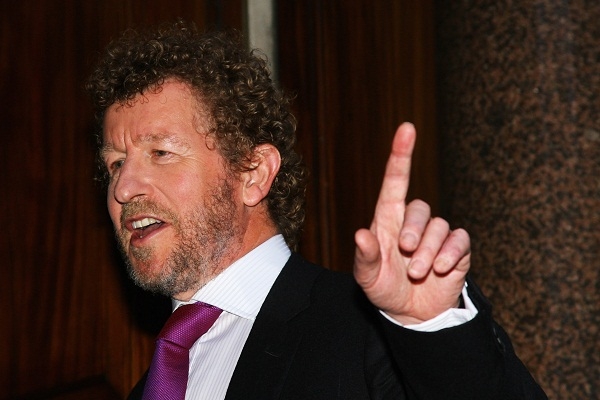In a promotional video clip, Sebastian Faulks describes his new novel, A Possible Life, as like ‘a symphony in five movements… or an album in which the tracks are separate but the whole thing adds up to more than the sum of its parts.’ The idea of the musical novel – held together by themes, motifs and echoes rather than a linear plot – has been discussed or attempted by authors from Flaubert to Kundera. So what has Faulks, with his bestseller know-how, brought to this fragile form?
We are given five separate stories with a large historical and geographical range. Their centres include Geoffrey Talbot, a prep-school languages master turned spy in the Second World War who is captured and made to work in a concentration camp; Billy Webb, a workhouse boy in Victorian London who becomes a sort of property developer; Elena Duranti, a neuroscientist in futuristic Italy who discovers the part of the brain responsible for human consciousness; Jeanne, a housekeeper in Napoleonic France who undergoes a religious experience, and finally the joint story of two musicians in 70s America: Anya King and Jack Wyatt.
Faulks’s prose here is sparer than usual while retaining its fluency and lightness of touch. Heavily abridged, these lives move through years in a matter of sentences or words. What unites Faulks’s players is the sense they have of a kind of subconscious blood memory of one another, as well as a network of motifs, some louder than others: examples of institutionalised drudgery (orphanages, prisons, workhouses, even a record company’s hit factory), love triangles, brain damage, guard dogs, a religious figurine and a couple of set locations. Then there are the big ideas that develop with each chronological shift: the impossibility of imagining oneself into another’s life, the dual nature of experience and memory, human understanding of the brain, the will to survive and the way memories die with the individual.
I was initially worried that the broad, universal abstracts linking the parts of the novel would be too basic and unspecific to support an interesting work of contemporary fiction. I was wrong. A Possible Life is a rewarding and subtly engrossing novel.
The finest section, and the focus for the album/symphony aesthetic, follows a singer-songwriter from the Catskills to Los Angeles in the 1970s. In his 2009 novel, A Week in December, Faulks’s faithful realism, bent occasionally but responsibly for satire, slouched into a pessimistic, dad’s-eye-view grotesque when it attempted to represent modern pop music: a teenager in 2007 listens to a (supposedly widely popular) band called Girls From Behind and a song entitled ‘A First Step in Dying.’ This silliness is rectified in A Possible Life, where the atmospheric and moving story of Anya King, a Joni Mitchell type, is told by her producer and lover Jack Wyatt: an amalgamation of Graham Nash and David Crosby.
Though it isn’t essential to know these parallels, it gives us an insight into Faulk’s deep personal interests. This section is a labour of love, and it is from this that it gathers its strength. The King/Wyatt love affair is given poignant examination and the music is brought almost out of the page. Faulks first betrayed his love of Joni Mitchell in A Week in December, where he (unconsciously?) let the lyrics of her song ‘Edith and the Kingpin’ permeate the interior monologue of a twenty-something jihadist on his way to blow up a hospital. It seems Faulks has been aching to explore this terrain for a while. In his latest novel he gets the chance, and the result it the most probable of his possible lives.
When Faulks imagines himself into his characters he seems to prefer a challenge: usually one that demands a lot of research. This novel’s quarries are the cosmic truths that never change, regardless of historical placing or scientific understanding. Thus, Faulks calls upon himself: what he already knows through living and writing, for his main research. In the possible lives he gives us, though you get the trademark thoroughness and circumstantial accuracy, there is enough room for the author himself to breathe.
A Possible Life by Sebastian Faulks is published by Hutchinson (£18.99)






Comments